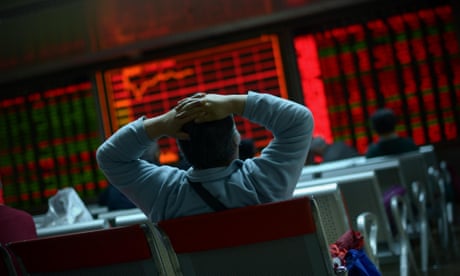Explain why dependency on a narrow range of primary products may damage an economy’s economic development.
Dependence on a narrow range of primary products can have significant implications for the economic development of a country. Economic development refers to a broader concept that encompasses not only economic growth but also improvements in living standards, human well-being, and structural transformation. Here's a comprehensive explanation of why such dependency can damage an economy's economic development:
Vulnerability to external shocks: When an economy relies heavily on a narrow range of primary products, it becomes highly vulnerable to external shocks such as changes in global commodity prices, natural disasters, or shifts in international trade policies. Any adverse event that affects the primary product can have a severe impact on the economy, leading to revenue losses, reduced government spending capacity, and lower economic growth. This vulnerability hampers the overall progress and stability needed for sustained economic development.
Limited diversification and structural transformation: Dependence on primary products can hinder diversification efforts and structural transformation in the economy. Economic development requires the expansion and development of various sectors, such as manufacturing, services, and knowledge-based industries. By relying on a narrow range of primary products, a country misses out on opportunities for diversification and fails to develop other sectors that can drive innovation, create higher-skilled jobs, and increase productivity. This lack of diversification limits the country's potential for sustained economic development and puts it at a disadvantage in the global economy.
Lack of value addition and low technology adoption: Primary product dependency often involves limited value addition and low technology adoption. Countries primarily engaged in the extraction and export of raw materials tend to focus on exporting the unprocessed products without adding significant value. This results in missed opportunities for increasing value through processing, manufacturing, and innovation, which are crucial for economic development. Without value addition and technological advancements, the country's competitiveness and productivity remain low, hindering overall development prospects.
Unequal distribution of wealth and income: In economies dependent on primary products, wealth and income tend to be concentrated in the hands of a few individuals or sectors involved in the primary product industry. This can lead to income inequality and socio-economic disparities, hindering inclusive development. The lack of equitable wealth distribution can undermine social cohesion, limit opportunities for social mobility, and hinder efforts to reduce poverty and improve living standards for the broader population.
Environmental and sustainability challenges: The production and extraction of primary products often have significant environmental consequences, including deforestation, pollution, and depletion of natural resources. Countries overly reliant on primary products may face environmental challenges that can damage ecosystems, impact biodiversity, and jeopardize the long-term sustainability of the economy. Sustainable economic development requires balancing economic growth with environmental conservation and ensuring the responsible use of natural resources.
An example that exemplifies the challenges of primary product dependency is several African countries heavily reliant on a single commodity, such as oil, diamonds, or minerals. Despite having substantial natural resources, these countries have struggled to achieve sustained economic development and have faced issues related to economic volatility, limited diversification, environmental degradation, and social inequalities.
In conclusion, dependence on a narrow range of primary products can damage an economy's economic development by exposing it to external shocks, hindering diversification and structural transformation, limiting value addition and technology adoption, perpetuating income inequalities, and posing environmental challenges. Promoting economic diversification, investing in human capital and technology, enhancing value addition, addressing income disparities, and pursuing sustainable development practices are essential for breaking the cycle of primary product dependency and fostering long-term economic development.
When evaluating the impact of primary product dependency on economic development, we can consider the theory of comparative advantage. The theory of comparative advantage suggests that countries should specialize in producing goods or services in which they have a lower opportunity cost compared to other countries. This specialization allows for increased efficiency and trade, leading to mutual gains.
In the context of primary product dependency, the theory of comparative advantage provides some insights:
Comparative advantage in primary products: Countries with abundant natural resources may possess a comparative advantage in producing primary products. They can exploit their resource endowments and export these products to earn foreign exchange and generate revenue. This specialization can initially bring economic benefits by capitalizing on the country's natural resource advantages.
Limited diversification challenges: However, reliance on a narrow range of primary products can hinder diversification efforts. The theory of comparative advantage suggests that countries should diversify their production and trade to fully capitalize on their comparative advantages in different sectors. By focusing excessively on primary products, countries may miss out on opportunities to develop and expand other sectors with comparative advantages, such as manufacturing or services. This limited diversification can impede economic development and make the country susceptible to external shocks.
Volatility and instability: Primary product prices tend to be more volatile compared to prices of manufactured goods or services. Changes in global demand, technological advancements, or shifts in supply conditions can lead to significant price fluctuations in primary product markets. This volatility can impact the stability of an economy, making it more vulnerable to economic downturns or revenue shocks. Economic development requires stability and predictability, and excessive dependence on primary products can hinder these objectives.
Building a knowledge-based economy: Comparative advantage also emphasizes the importance of building a knowledge-based economy. This involves investing in education, research and development, and technology adoption to enhance productivity and competitiveness. While primary products can provide a short-term advantage, long-term economic development relies on the ability to innovate, add value, and move up the value chain. Overreliance on primary products can discourage investment in developing a knowledge-based economy, slowing down the overall pace of development.
Structural transformation challenges: Comparative advantage suggests that countries should undergo structural transformation, shifting resources from low-productivity sectors to high-productivity sectors. Excessive reliance on primary products may hinder this transformation process by locking resources and labor in a specific sector. This can limit the development of higher-skilled industries and impede overall economic growth.
In evaluating the impact of primary product dependency on economic development through the lens of comparative advantage, it becomes evident that while countries may initially benefit from their comparative advantage in primary products, overreliance can pose challenges to long-term development. Diversification, building a knowledge-based economy, addressing volatility, and promoting structural transformation are critical for sustained and inclusive economic development.
It is important to note that the evaluation of primary product dependency should consider country-specific factors, such as institutional quality, governance, and policies. Each country has unique circumstances that can shape the outcomes of primary product dependency, and a comprehensive assessment requires analyzing these factors in conjunction with the theory of comparative advantage.





